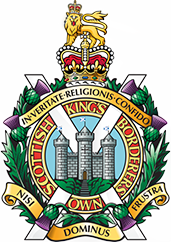The Letters of Thomas Rogers Continued…
Carefully turning each sheet of paper in the Thomas Rogers letter collection has brought surprises; be it a poem, a story from his travels, or one of his leaf samples. The writing paper he uses varies, with some embossed with The King’s Own Borderer’s regimental badge at the top, and some so thin and yellow that it appears more like tracing paper. He packs each small sheet with as much writing as possible and sometimes writes down the margins when he runs out of space. There is a feeling that he wants to shy away from describing anything disturbing that might have happened in his travels thus far, but 1876 marks the start of Thomas hinting that there is a sense of danger in the life he’s leading and that some of the soldiers may never make it home again.
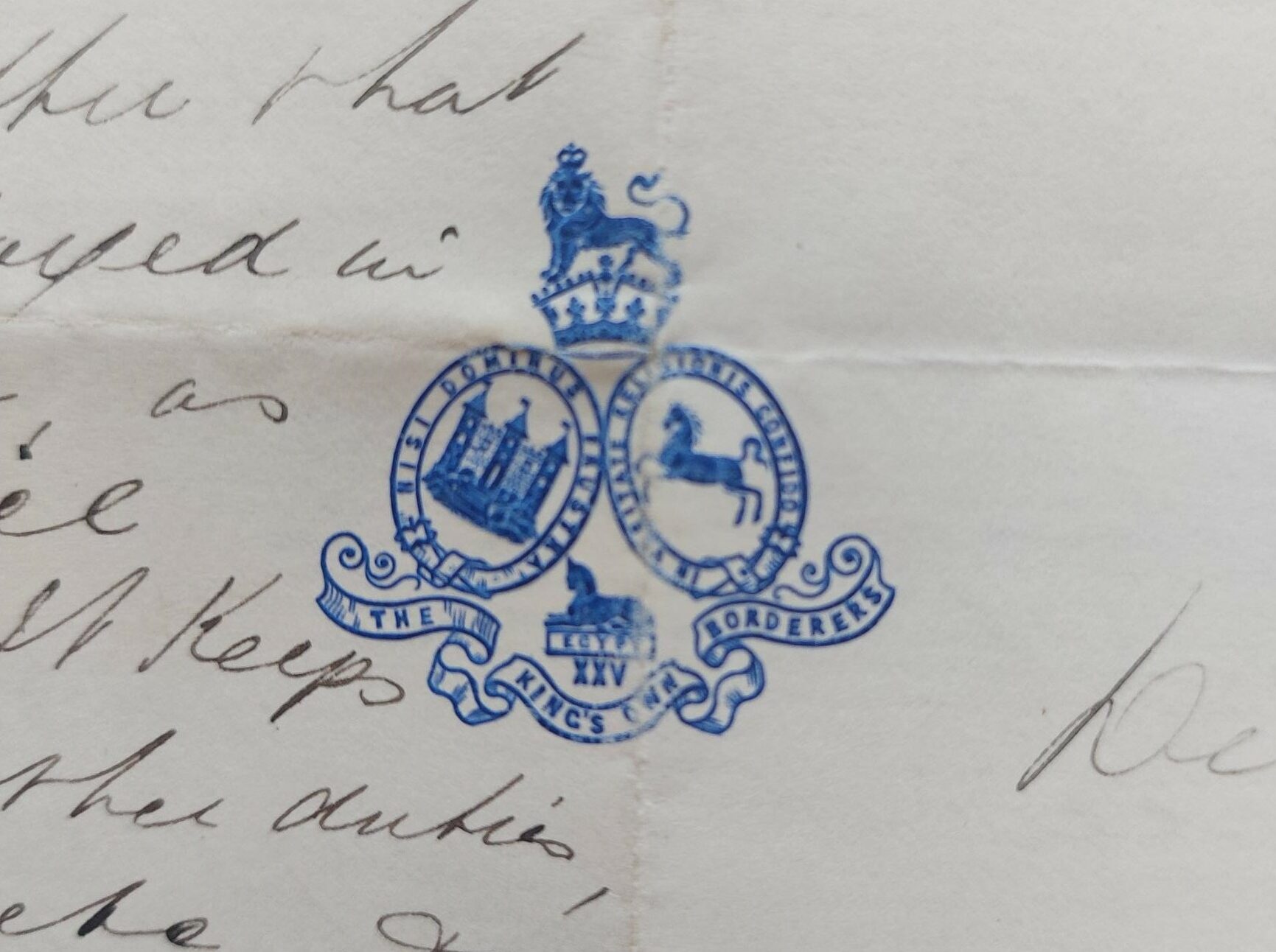
Naina Tal, Bengal
May 22nd 1876
…A great lot of our men died in Fyzabad since I came up here, I believe they all died of fever. Every letter we get here from Head Quarters tells us about some poor fellow we know who has died. Some poor fellow who came or sailed all the way out here from Queenstown Harbour to “die”. The question among the men is “I wonder who shall be next”. Death is so common out here it is not thought much of. There were more men died in our regt. out here in one month, than there were died during all the remainder of the time I have been in the regt.
It’s nearly Christmas and Thomas apologises that he has not sent a Christmas card, explaining that the people there don’t believe in ‘our Christmas’.
Bengal
Tuesday December 19th 1876
I hope you received the shawl I sent you all correct… We shall soon have Christmas here now, and you may be sure we shall enjoy ourselves as well as possible up here among the Himalayas. Soldier’s manage somehow to enjoy themselves in all parts of the world on Christmas day, there will be a deal of talk, no doubt, about absent friends and “I wonder how many of us will be together next Christmas”.
When I first found this collection of letters in the Archives, they were neatly wrapped up in a small box and looked as though they had lain undisturbed for years. They were in date order. The items Thomas had pressed inside were, despite their age, entirely intact. I jumped with surprise when opening this letter of December 19th in particular, as there was a delicate but perfectly preserved butterfly inside.
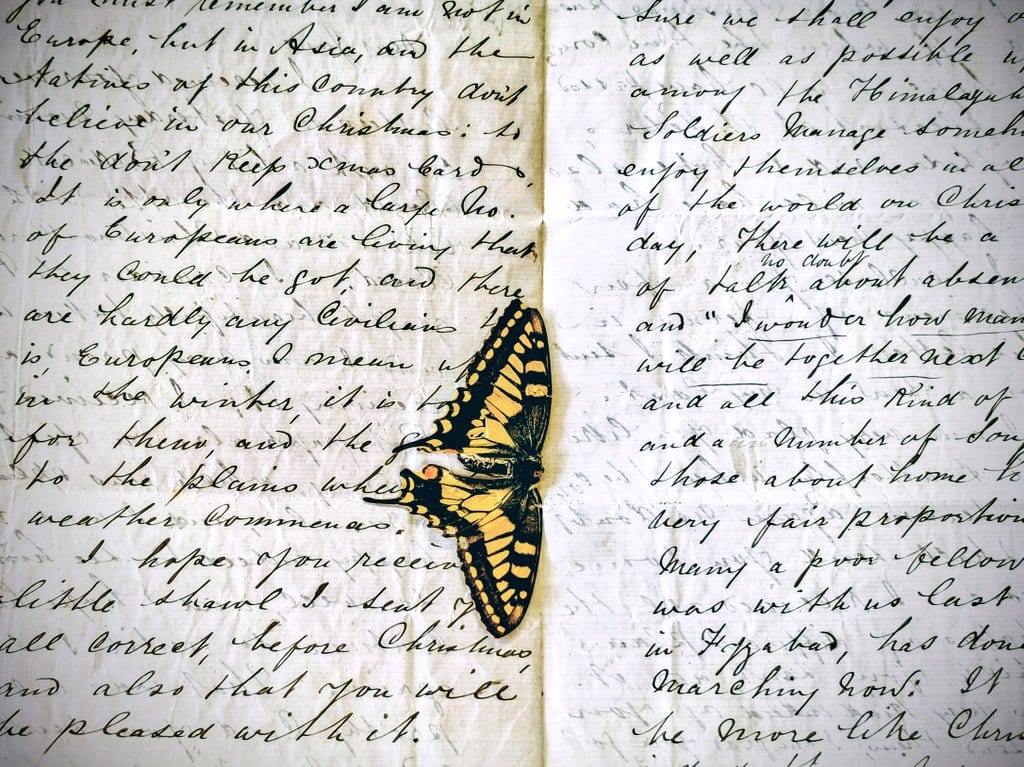
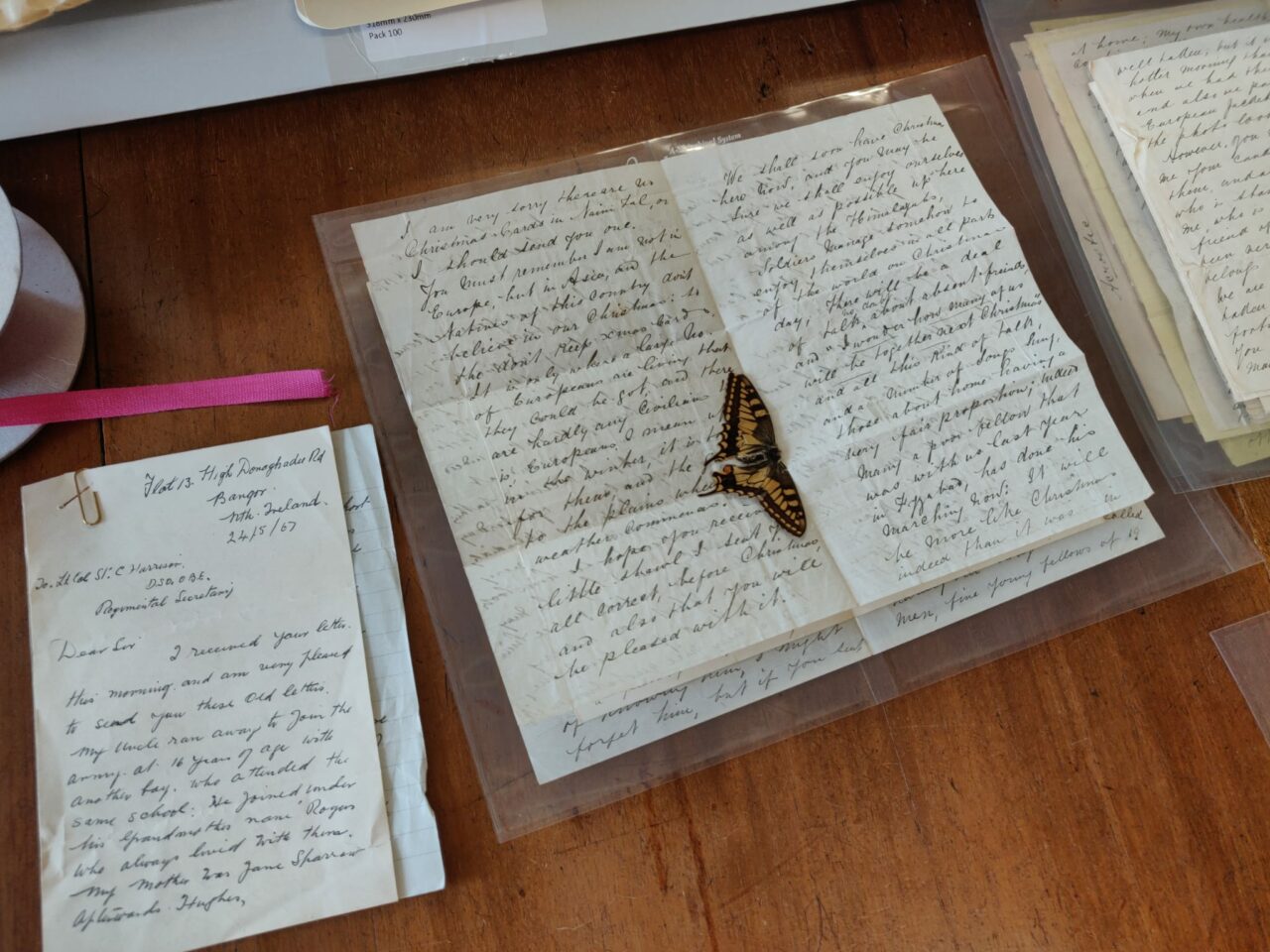
As the letters continue, we build up a picture of the life Thomas has left behind in Ireland. He frequently mentions other members of the family, saying that he has just received a letter or newspaper from his father. In one letter he expresses his sadness at the death of their aunt Fanny. In another he says how sorry he is to learn that a friend of theirs is in prison but hopes that it will teach him the lesson he needs, adding that a stint in the army would not go amiss. We also learn more about Jane and how her life is progressing while her brother is away.
Fyzabad, Bengal
15th February 1877
… I think you mentioned in your letter which I received on the march, about a Mr Hughes, well I am sorry to say I have not the pleasure of knowing him, I might forget him, but if you send on his photograph it might remind me of him.
At this point, Thomas is still writing to Jane Sparrow but later letters are addressed to Jane Hughes so we can safely assume that this Mr Hughes becomes very important to her. They later have a daughter, referred to by Thomas as ‘Weo’ (we never get to learn her real name).
In the same letter where we first hear of Mr Hughes, Thomas also tells us more about the effect of their campaign on the regiment.
I have missed a good many familiar faces since I rejoined the regiment, faces that now lie cold in the grave. Young fellows too, hardly old enough to be called men, fine young fellows of 19, 20, 21 years and upward, called away suddenly by the rude hand of Death.
We know that around August 1878, the Regiment suffered greatly from a cholera epidemic – in a letter dated 18th October of that year he says that “We had 63 deaths during the short time the epidemic lasted” – and, in several letters, Thomas describes the quarantine measures enforced on the soldiers. There was no mixing allowed between camps and those infected had to be at least 200 yards away from the rest of the camp. He speaks of the “dreadful plague […] raging in Fyzabad.” He confides in his sister that he and a fellow soldier break the strict rules, risking punishment, to see each other.
…my friend, whom I mentioned in several former letters, broke the Quarantine Rules, and came up to my camp to see me, and I assure you Jane, I was very happy to see him well. After a little conversation, of which you may perhaps have formed a part, he wound his way back to his own camp, as quickly as possible to evade the Military Police who were prowling about to catch any person who might be daring enough to break the Quarantine Rules; and now, leaving you watching him, moving stealthily along to avoid the gaze of Bobbies, as he gets home to his own camp.
I will conclude with kindest love from your affectionate brother,
Thomas Rogers
D Company
KOB
One letter contains a section of medal ribbon from the Second Afghan Campaign. A note, written in 1967, that was found with the letters, mentions that, in later life, Thomas had to apply for an army pension, using the letters as his only surviving proof of his experience and time with The King’s Own Borderers. This section of medal ribbon will have provided further credence to his story.
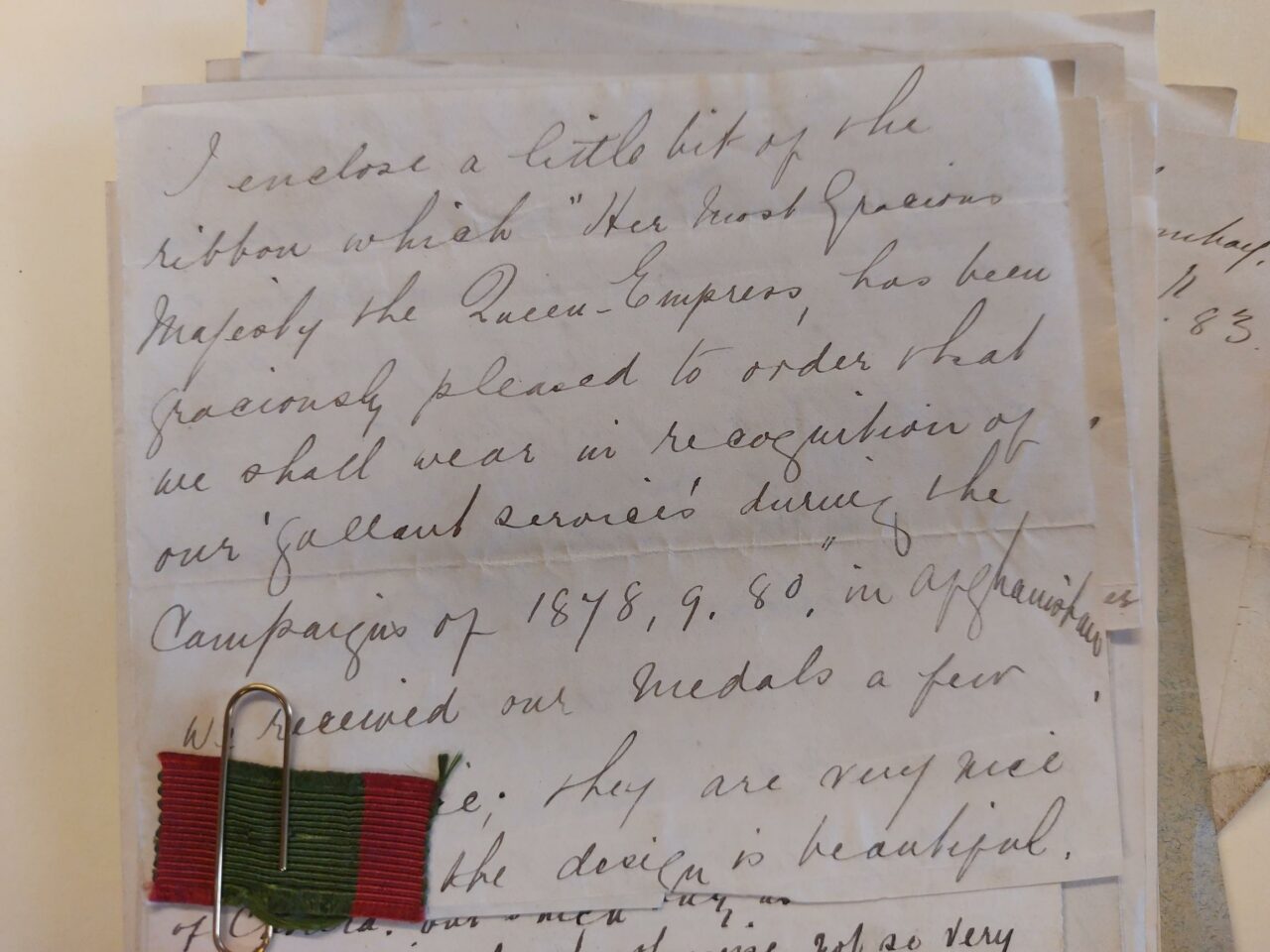
The last letter to Jane is dated Tuesday 8th January, 1884 and is sent from Portsmouth and, in it, Thomas tells Jane that their ship ran aground near Portland before eventually getting back to safety. Presumably, the next contact between the brother and sister would be face to face. The 1967 letter provides a small amount of information regarding Thomas’ life after the army. He became a compositor for The Irish Times, working in Dublin. He married and had a daughter who sadly died during World War II bombing. Thomas Rogers began his life with The King’s Own Borderers as a runaway who then found himself seeing and experiencing things far beyond anything he could have expected. He sees death and beauty as he travels through Fyzabad, Peshwar, Umballa, Dagshai and the Suez Canal. His letters open up a whole new world for Jane and, to us reading them now, shed light on a forgotten time.
